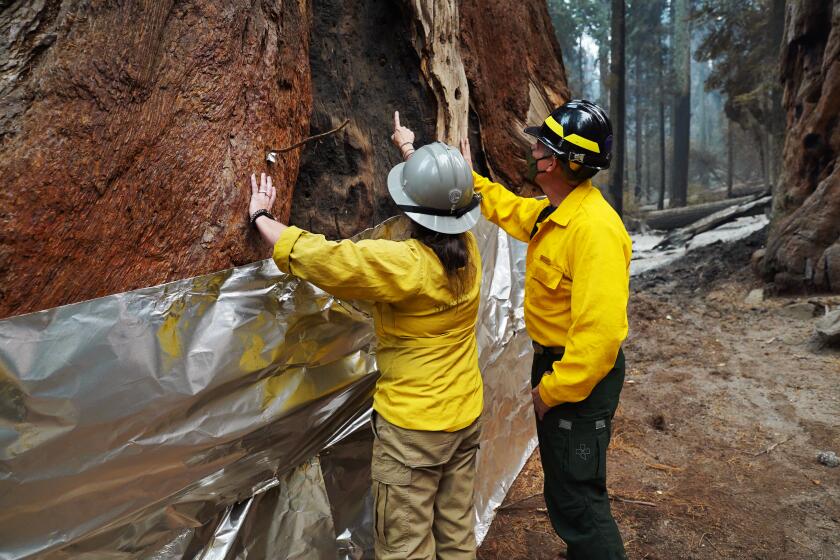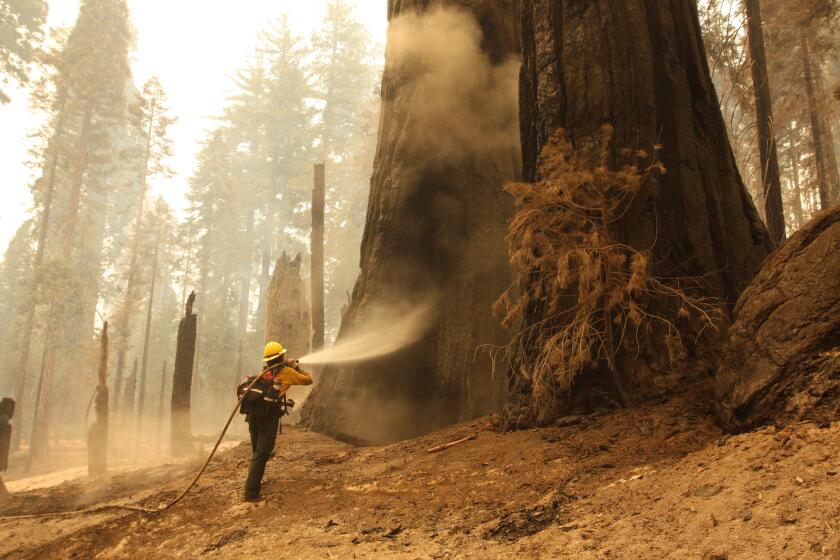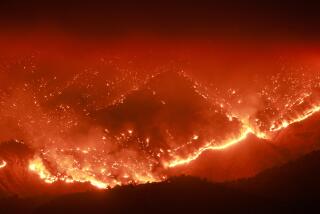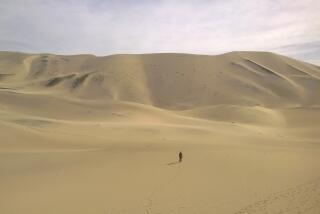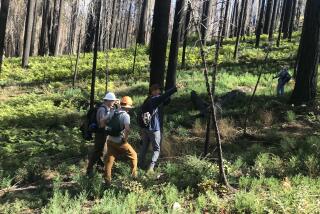Sequoia National Park, charred by wildfire, to partially reopen Thursday
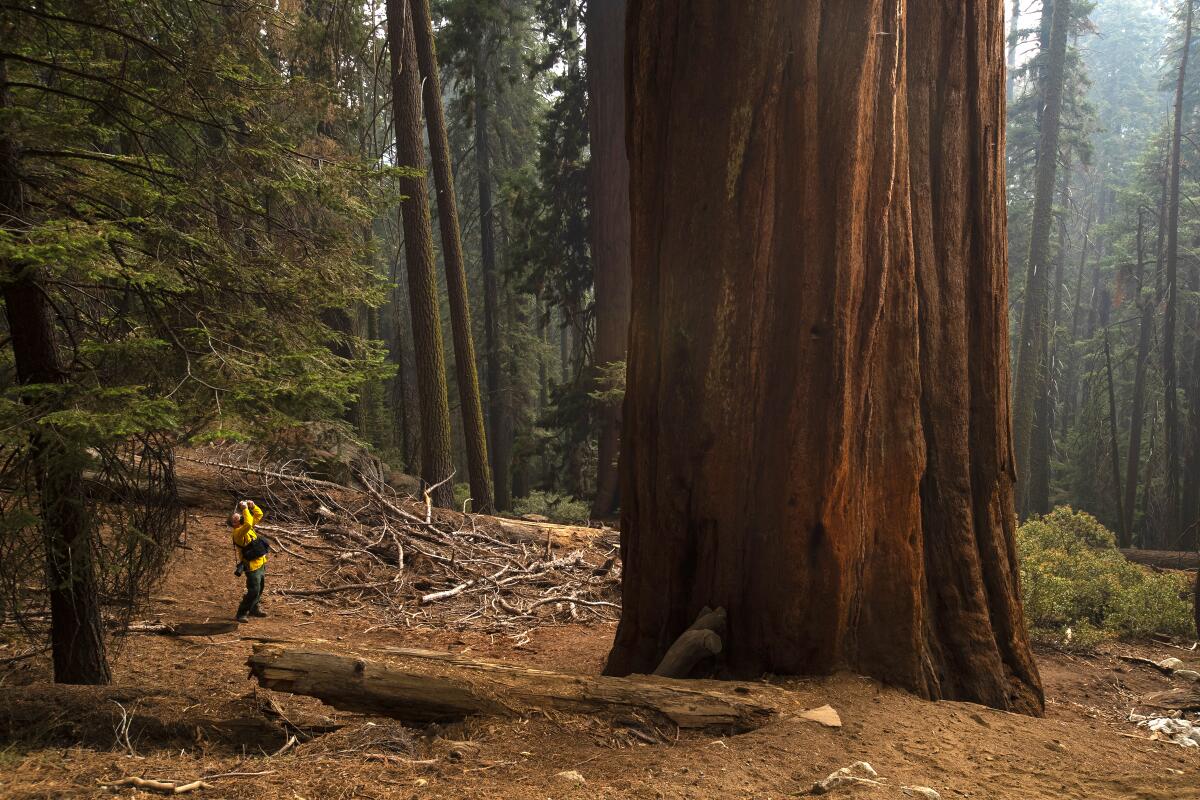
Those who venture into Sequoia National Park — which is partially reopening Thursday after a roughly two-month closure — will see areas charred by still-active wildfire, including scorched trees at higher elevations.
From certain vantage points, visitors to the park nestled in the southern Sierra Nevada will see smoke billowing from areas where the KNP Complex fire continues to burn, according to fire officials.
But they’ll also see green grass, thanks to recent rains.
With more rain having arrived Tuesday, there’ll be areas resembling “a green carpet,” said Mark Ruggiero, a fire information officer.
“It will look like spring a little bit,” in burned areas where regrowth has begun, he said.
Some of the park’s biggest draws will remain off-limits, including the Giant Forest, famed for its sequoias, among them the General Sherman, considered the world’s largest tree by volume. The enormous tree was wrapped in a fire-resistant aluminum material before flames passed through the forest and emerged unharmed.
A portion of the park’s foothills area will reopen at 7 a.m. Thursday for day use only. The reopening coincides with Veterans Day, which is the last fee-free day for national parks for the year, according to officials.
The park closed in mid-September after a pair of lightning-sparked wildfires ignited in the region and merged, potentially killing hundreds of sequoias.
Flames from the KNP Complex fire have charred about 88,300 acres and are still only 75% contained.
The majority of the adjacent Kings Canyon National Park reopened last month. There, visitors can see giant sequoias in Grant Grove, home to the second largest tree in the world, the General Grant Tree.
The KNP Complex fire may have killed hundreds of sequoia trees in the southern Sierra, and at least 74 have died in the Windy fire, officials said.
The reopened area of Sequoia National Park will stretch from the Ash Mountain entrance to the Hospital Rock Picnic Area, about six miles up Generals Highway, and includes the Foothills Visitor Center, Tunnel Rock and some trails, park officials said.
Remaining closed will be the Lodgepole, Potwisha and Buckeye Flat campgrounds, as well as the Marble Falls, Paradise Creek and Potwisha-Hospital Rock trails.
Generals Highway will remain closed past Hospital Rock.
Ruggiero said the opening could be extended to the General Sherman tree within a week. There’s no projected date for a full reopening.
Desperate to protect the giant trees, fire officials have wrapped them in foil and doused them with gel. Some methods have never been tested.
The KNP Complex fire is still burning in some areas with pockets of heavy fuel, including in sequoia groves that sustained intense fire.
“Realistically, some of these pockets could burn all winter long, even with snow,” Ruggiero said.
The flames are not a threat to people or property, he said.
The blaze has encroached on 15 groves of giant sequoias, Christy Brigham, chief of resources management and science for the parks, said in early October.
Park officials wrote on Facebook that they suspected hundreds of sequoias may have been killed by the flames.
By that time, the Windy fire burning in the Sequoia National Forest and Tule River Indian Reservation to the south had wiped out at least 74 giant trees, according to Garrett Dickman, a botanist assigned to the blaze.
An updated assessment of the trees within Sequoia National Park could be released as early as next week, Brigham said.
More to Read
Sign up for Essential California
The most important California stories and recommendations in your inbox every morning.
You may occasionally receive promotional content from the Los Angeles Times.

